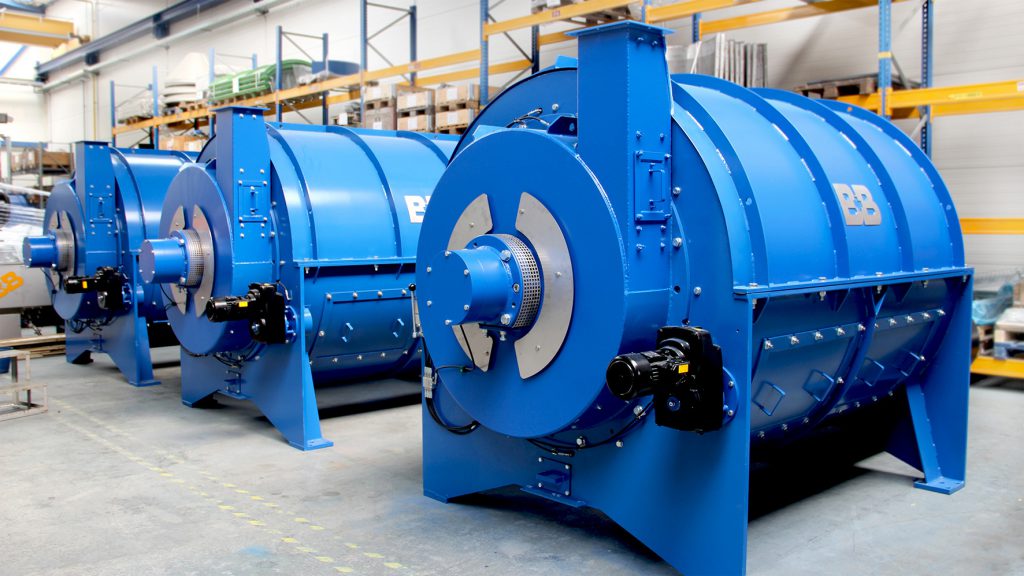Every dollar matters when it comes to growing a business. For those needing industrial machinery, the choice between new and pre-owned equipment can significantly impact the budget. Pre-owned machinery offers the same functionality and quality, often at a fraction of the price, allowing businesses to allocate funds to other priorities.
It’s a savvy choice that stretches resources further, which is especially valuable in times of economic uncertainty. By choosing pre-owned, companies can focus on growth, flexibility, and strategic upgrades without the heavy costs.
Let’s look at why used equipment might be the perfect fit for your business and how it can support your growth ambitions.
1. How Should You Inspect Used Machinery Before Purchasing?
Before buying any pre-owned machinery, especially precision tools like a surface grinder, it’s wise to conduct a quick inspection to ensure it’s a reliable investment. Start by examining the condition of major parts and components, such as the frame, grinding wheels, and any moving parts, to check for signs of wear, rust, or cracks. Reviewing important surface grinder specs like table size, spindle type, and grinding wheel dimensions is also essential to confirm compatibility with your tasks and requirements.
Additionally, checking the machine’s maintenance history, and usage hours, and performing a test run can help you avoid unexpected costs and ensure long-term reliability. A simple inspection like this can help you avoid unexpected costs and ensure you’re getting solid value from your purchase.
2. Cost Savings
One of the most appealing aspects of buying used equipment is the immediate cost savings. Pre-owned machinery is often available at a fraction of the price of new, which allows businesses to allocate their budgets toward other vital areas. For small to medium businesses, this cost advantage can be significant, making it easier to expand operations, improve facilities, or increase staffing without straining the budget.
Lower upfront costs mean a faster return on investment, helping you reinvest savings into growth and innovation. Used equipment also allows for smart spending on high-quality brands that might otherwise be out of reach. With reduced financial pressure, you can achieve the same productivity at a fraction of the initial investment.
3. Quick Availability
In fast-paced industries, waiting weeks or even months for new equipment to arrive can slow down operations. Used equipment, on the other hand, is usually available for immediate purchase and delivery. This quick availability enables you to set up and start using the equipment as soon as possible, which is invaluable for businesses that need to hit the ground running.
Faster setup times mean you can meet sudden market demands or tight project timelines with ease. By avoiding long manufacturing lead times, you reduce downtime and keep projects on schedule. Immediate availability also lets you act on business opportunities without delays, helping you stay competitive.
4. Proven Reliability
Used equipment, especially from reputable sellers, often has a proven track record of reliability. Sellers of pre-owned equipment typically conduct inspections and address any issues before resale, meaning the equipment has already gone through real-world tests. In many cases, previously owned equipment can even be more reliable because any initial problems have already been resolved, giving you a dependable machine with less risk.
Machines that have passed rigorous checks are likely to perform consistently over time. Used equipment often comes with a verified performance history, allowing you to make a confident choice. With tested machinery, you can focus on productivity rather than dealing with early technical issues.
5. Reduced Depreciation
New equipment depreciates quickly, often losing a significant portion of its value within the first few years. With refurbished equipment, the majority of that depreciation has already occurred. This means that if you decide to resell the machine later, it’s likely to retain a more stable resale value, lowering the financial risk for your business.
Reduced depreciation provides a cushion, preserving your investment’s worth over time. Your business benefits from lower losses on asset value, improving financial flexibility. This stability allows you to adapt to changing needs without high depreciation costs eating into your budget.
6. Environmentally Friendly
Purchasing used equipment is not only cost-effective but also an environmentally responsible choice. By buying pre-owned, you help reduce waste and decrease the demand for new manufacturing, which requires resources and energy. Making eco-friendly choices in your operations can also align with modern consumer values, helping to boost your company’s reputation for sustainability.
Choosing machinery that is used reduces the environmental footprint of industrial production and supports a circular economy. Sustainable practices can attract eco-conscious clients and partners, creating positive brand alignment. By using pre-owned, your business actively contributes to conserving natural resources for future generations.
7. Flexibility for Growing Businesses
For businesses that are scaling up or testing new services, pre-owned equipment offers valuable flexibility. It’s often easier to buy and resell used equipment as your needs change, allowing you to adapt to growth without large financial commitments. Additionally, pre-owned equipment lets businesses experiment with new processes or expand their capacity with less risk.
This flexibility makes it easier to pivot or shift production focus if market demands change. Used equipment allows you to scale quickly without major capital outlays, supporting agile growth. For businesses in expansion mode, pre-owned equipment helps balance cost control with operational capability.
Wrapping It Up
So, there you have it! Choosing previously owned industrial equipment can offer your business substantial value. By focusing on quality, conducting a proper inspection, and purchasing from reputable sources, you can secure reliable machinery at a fraction of the cost of new. From stretching your budget further to promoting sustainable practices, investing in used equipment supports both your operational needs and your business’s long-term goals. Consider your unique requirements and explore the previously owned market to find equipment that aligns with your vision and helps your business thrive.

